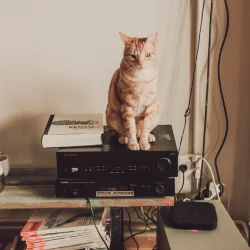Hustle culture, the sense of drive and ambition, is a value that many people have subscribed to for the past few decades
It is not just for economic reasons but also as a way to be self-satisfied in maximizing their potential. However, lately, discussions about work-life balance have made this ideology ironic. Both hustle culture and work-life balance have their merits, yet the new norm for generations seems to have shifted, with many people subscribing to the idea of doing the bare minimum.
In a world that is constantly changing, the question arises: What should people believe in? Does it still fit for the new generation and societal norms?
Coming from a creative industry background it’s ingrained in our ethos to aim for better work, to hustle, do more, make more, and to keep trying. In some parts of the world it’s even encouraged to have a hobby, to express creativity beyond our work. I wholeheartedly stand by this approach and have enjoyed the process.
In the past, I would be awake at night, hustling on my side projects and hobbies, constantly seeking to do more
For me, it was the drive, the ambition to create better products, ideas, and creative outcomes. Even during the pandemic and lockdown, I found myself picking up many new skills and exploring new hobbies. For me, that meant diving into the world of 3D and Unreal Engine to create a game. Countless late nights were dedicated to spending 3 to 4 hours each night trying to figure out things in which I had no prior experience or training. I was purely driven by the challenge and the hope of making something great, showcasing the persistence of my drive and creativity.
Lately, things have changed. Now my body just tells me to take a break and to get to sleep early. And as much as I want to wake myself up and hustle, it doesn’t feel right. Perhaps it’s the satisfaction of my work which has been good for my creative goals. Either way, it has compelled me to think more about work-life balance and self-control.
Recently, I listened to a podcast with one of the founders of The Yes Theory (above), who emphasised the importance of going all-out in your 20s but then starting to prioritise what truly matters in your 30s. Trying too many things can spread you thin, and denying this fact can be dangerous.
I asked a clinical psychologist about it…
She said that as we hit different milestones in our life, when we have more resources and responsibilities, it is normal that we need to start re-prioritising our drive and energy. It’s about making the best configuration and finding the optimal result. While this seems like a generic thing to say, it has prompted me to re-evaluate my day and exercise more self-control.
At the end of the day, I’m still a passionate person. I love hustling, learning, and making things. However, perhaps as we age, we need to listen to our bodies physically and to our inner voice mentally. Doing less doesn’t necessarily mean doing worse. It’s not about quantity, but quality. My mentor once told me this, using the analogy of a soccer player: the younger ones chase the ball but the more experienced ones tend to observe more, watching the back and forth of the game.
Therefore, it is essential to reevaluate and customise what works best for each individual. Work-life balance may not be a strict 50:50 ratio for everyone. Some people prefer to work more, and if that works for them that’s their balance. Hustle culture will always exist as long as people remain curious. However, now, perhaps a more balanced hustle culture that is wiser and more energy-efficient, and does not neglect personal time is necessary.
Featured image: Lorenzo Herrera / Unsplash































